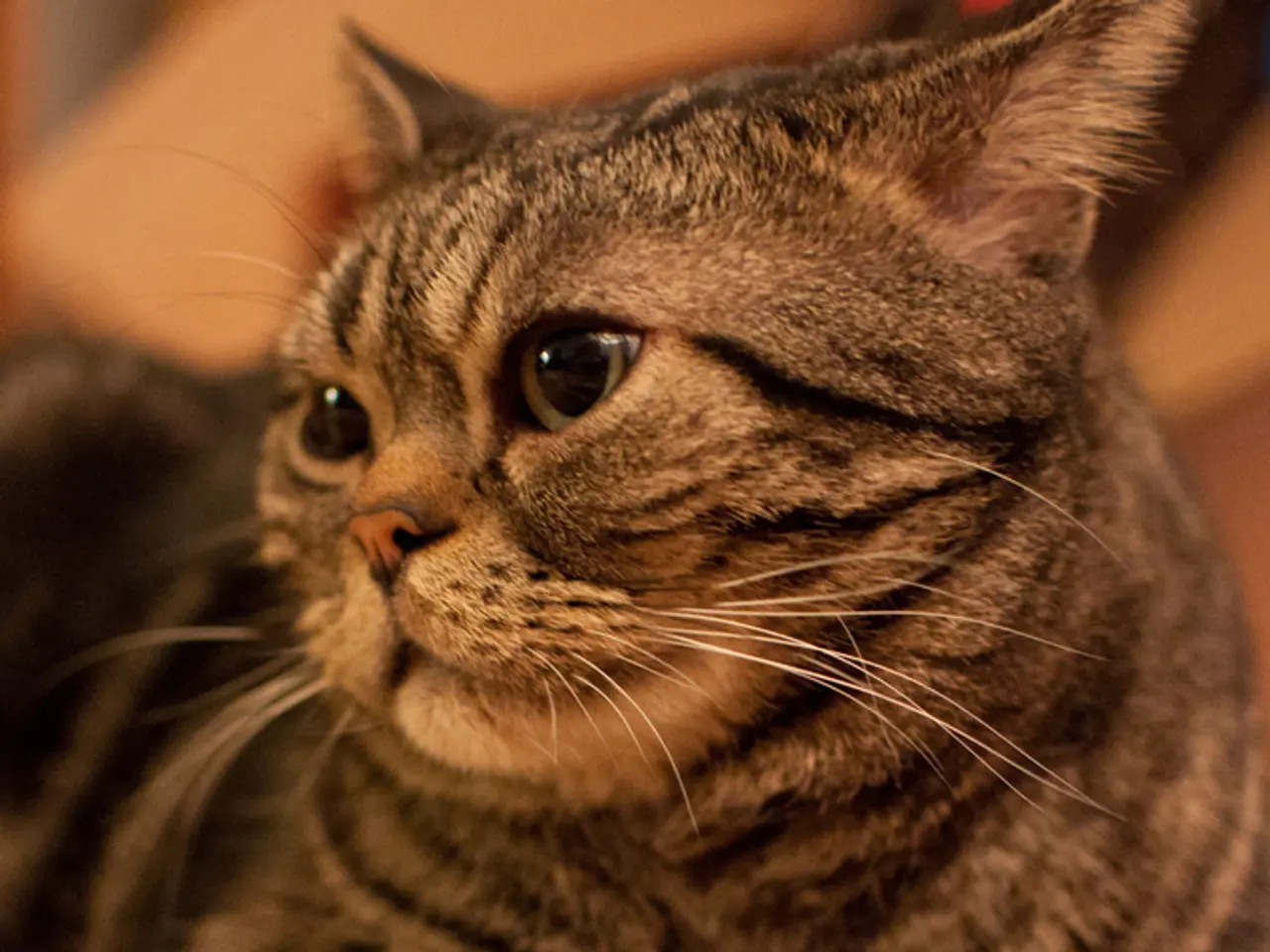Felines and Mental Health Struggles: Coping with Anxiety and Depression in Cat Owners
In recent years, the relationship between cat ownership and mental health has been a topic of interest for researchers worldwide. Here's a breakdown of the key findings on this subject.
Cats, known for their affectionate nature, can provide comfort and companionship, helping to alleviate symptoms of depression and anxiety. For instance, petting or cuddling a cat has been found to reduce the levels of cortisol, the stress hormone, in the body, offering a calming effect. Moreover, having a cat can help combat loneliness by providing a sense of being needed and companionship.
However, it's important to note that cats are sensitive to the emotions and feelings of their owners. They can sense anxiety and may become anxious themselves. Signs of cat anxiety include aggression, changes in sleep patterns, loss of appetite and weight loss, hiding or trying to escape, increased meowing or other vocalizations, pacing or difficulty relaxing, increased grooming, and difficulty being left alone.
Interestingly, a 2020 study found no difference in depressive symptoms between pet owners and those without pets in adults 50 and older. This contradicts earlier findings, such as those from two separate Japanese studies, which found that cat ownership among adolescents and pregnant people was associated with poorer mental health.
On the other hand, a study in 2017 suggested that cat ownership may lead to lower feelings of depression compared to dog ownership. However, it's crucial to remember that everyone's situation is unique, and the impact of pet ownership on mental health can vary greatly from person to person.
New Zealand researchers found that those living alone with pets were more likely to report diagnoses of depression and anxiety. This could be due to high attachment levels to a pet, which, according to a 2010 study, can increase symptoms of depression and loneliness in some people.
It's essential to consider the potential stress that cat ownership may bring. About 25% of adults over 50 in the United States associate their symptoms of depression and anxiety with cat ownership. If the stress of caring for a cat may worsen a person's condition, it is recommended to speak to a physician prior to obtaining a new pet.
In such cases, if a cat's behavior or stress regarding its care contributes to a person's symptoms, they can speak with a vet about the support that is needed or education on the unknowns. It's important to remember that depression is not contagious, and a clinically depressed owner does not pose a danger to the mental health of their cat, as long as they can properly care for it.
In conclusion, while cats can offer comfort and companionship, it's crucial to consider the potential impact on mental health. Any signs of cat anxiety should prompt a trip to the veterinarian, and it's always a good idea to consult a physician before deciding to bring a new pet into the home.
Read also:
- Understanding Hemorrhagic Gastroenteritis: Key Facts
- Stopping Osteoporosis Treatment: Timeline Considerations
- Tobacco industry's suggested changes on a legislative modification are disregarded by health journalists
- Expanded Community Health Involvement by CK Birla Hospitals, Jaipur, Maintained Through Consistent Outreach Programs Across Rajasthan








